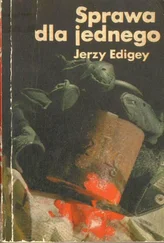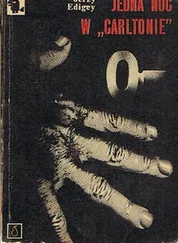There was a moment of utter silence. The birds fell quiet. Nature came to a standstill. Not even the shadow of the simple thought that maybe I had gone a bit far passed through the limited brain of this class genius. I luxuriated in my infallibly A+ answer. I also luxuriated in the fact that only I, her wise beloved, could see the imperceptible blush that was slowly covering her dark cheeks. The Pastor’s Wife’s complexion was not white like paper; it was dusky like the Rose of Zion, like the shoulders of King Solomon’s betrothed. The Pastor’s Wife was dark like the consort of a Brazilian soccer player. Thunderous applause erupted, rousing a black grouse at the edge of the forest to a fluttering run. Everyone who was sitting at the table, made of the same pine planks as the podium, clapped. Father, Mother, and Mr. Trąba clapped — admittedly, with a peculiar reserve; but the rest, with the exception of Father Pastor Potraffke — I don’t know how he clapped because, of course, I didn’t dare to look at him — all the rest, Grand Master Swaczyna, Małgosia Snyperek, Sexton Messerschmidt, Mrs. Rychter, Commandant Jeremiah, and even Elżunia Baptystka, and all the confirmation students sitting below at a table of their own, all clapped as was proper.
I sat down among them, placed the edifying literature in front of me, and drank a sip of soda pop that was green like the Orinoco.
“Brothers and sisters,” said Father Pastor Potraffke, “let us return to the subject of our dispute.”
“Which one?” Mr. Trąba asked. “Killing Gomułka?”
“The killing of tyrants in general,” replied Father Pastor Potraffke with impatience in his voice. “If it is a question of killing Gomułka, then why, basically, do you need to kill him, since Communism will collapse sooner or later anyway?”
“If the comrades kill the Comrade First Secretary, the system will collapse later, and perhaps it won’t collapse at all,” Commandant Jeremiah’s voice thundered ominously and menacingly. “Comrades, you wish to speed history up, but with your irresponsible escapade — incidentally, I don’t believe in its realization, and that’s the only reason why I take part in this academic discussion — with your irresponsible escapade you will slow history down. That is inconsistent with the spirit of revolution.”
“I don’t intend either to speed history up or to slow it down,” Mr. Trąba spoke more quietly than everyone else, as if led even now by the modesty that ought to characterize the Chief Assassin. “I don’t intend either to speed it up or to slow down. I intend to lend it a definitive character. Or rather to make society aware of the inevitability of history. Perhaps the Communists, deprived of their leader, will not disperse but will close ranks instead, causing the system to last a little longer, but the inevitability of the end will be all the more evident.”
“Personally, it seems to me,” the television announcer’s voice of Grand Master Swaczyna resounded, “personally, it seems to me that the role of doing away with scoundrels is not for a serious person who has other, more serious things to do in this world. It should be left to frustrated and penniless students. Let them throw bombs at the feet of tyrants.”
“We are all Protestants,” said the Curator of the Church Grange, “and Protestants are supposed to shine by example.”
“I am,” Mr. Trąba slowly measured out every word, “I am, in a certain sense, a frustrated student without a penny to my name, and I have nothing more serious to do in this world. I am also a Protestant, and I wish to shine by example.”
Sexton Messerschmidt had been fidgeting for a good while.
“Be that as it may,” he said with irritation, “be that as it may, it’s getting time to begin the second part of the banquet. It’s getting cold.”
Grand Master Swaczyna bowed, with unusual politesse, in Sexton Messerschmidt’s direction, and he said soothingly:
“A moment of patience, a moment of patience. I placed a suitable order, and it will certainly be delivered any moment.”
“Protestants have never taken part in assassinations.” The Pastor’s wife descended from the podium and sat down at the end of the table, as far away from me as possible.
“Protestants never took part in anything at all,” Father muttered sullenly. “Not taking part is the chief characteristic of Protestants, especially in Poland.”
“I’ve told you a thousand times,” Mr. Trąba chimed in even more quietly and with even greater forbearance, “I’ve told you a thousand times that if someone doesn’t exist at all, it’s hard for him to take part in anything.”
“But comrade, you intend to take part in the killing of Gomułka, and an active part at that,” Commandant Jeremiah shouted triumphantly.
“Active and definitive. As a Protestant, who doesn’t exist, I can kill without hesitation, since the act will remain in the realm of nothingness. If, as some say, Poland is a Catholic country, then, there you have it! It follows clearly from this that, if lèse-majesté is perpetrated in a Catholic country by a non-Catholic, that is by nobody, or by a foreigner, then the good name of our holy fatherland, the holy mother of all fatherlands, to whom the tradition of assassinating kings is foreign, will remain unsullied, and at the same time she will gain the name of the one who, as the first of the oppressed, raised her hand against the usurper. You don’t appreciate the precipitous dialectic of my patriotism.”
“Once again it’s the Catholics who are to be blamed for everything.” Pity struggled for supremacy with barely suppressed fury in Station Master Ujejski’s voice. “Once again it’s the Catholics who are to be blamed for everything. I swear, every time I accept your heretical invitation to an allegedly ecumenical vodka-bibbery, I always discover that it’s the Catholics who are to be blamed for everything, and as a Catholic — a sorry example, but still a Catholic — and yet, as the Catholic, I end up looking like an ass. It’s inconceivable that in a Catholic country a tiny handful of apostate brethren should make a fool out of any Catholic, even me. We aren’t to blame; you’re to blame. You shouldn’t have made a schism.”
“Mr. Ujejski,” Sexton Messerschmidt raised his voice, “you shouldn’t have brought about the crisis of the papacy in the Middle Ages. You shouldn’t have dealt in indulgences.”
“If you really think,” the Station Master replied coldly, “if you really think that I, Tomasz Ujejski, son of Tomasz, brought about the crisis of the papacy in the fifteenth century, as well as dealt in indulgences, then you, Mr. Messerschmidt, were right to reform the Christian Church.”
“Of course I was right,” the Sexton shouted.
“You’re always right, because your ‘right,’ all of your heretical ‘right,’ is by definition greater than logic,” said the Station Master dismissively.
“It all comes from an improper diet and a lack of optimism.” Mrs. Rychter’s tone seemed to herald an extensive lecture on the topic of healthy food and a positive attitude, but Sexton Messerschmidt, clearly subject to the changing mood, interrupted her with unexpected enthusiasm:
“Very well said. I’d like to consume something that would give me optimism. Business is business, but optimism is optimism.”
“Brothers and sisters,” said Pastor Potraffke, and he raised up his arms.
In the depth of the forest a car horn resounded. Grand Master Swaczyna glanced at his watch. A rapturous smile lit up Sexton Messerschmidt’s face. The grimace of a painful contraction flitted across Mr. Trąba’s countenance. An army jeep appeared at the end of the forest road, and, rocking on the ruts, it slowly drove up to the middle of the glade.
Читать дальше












